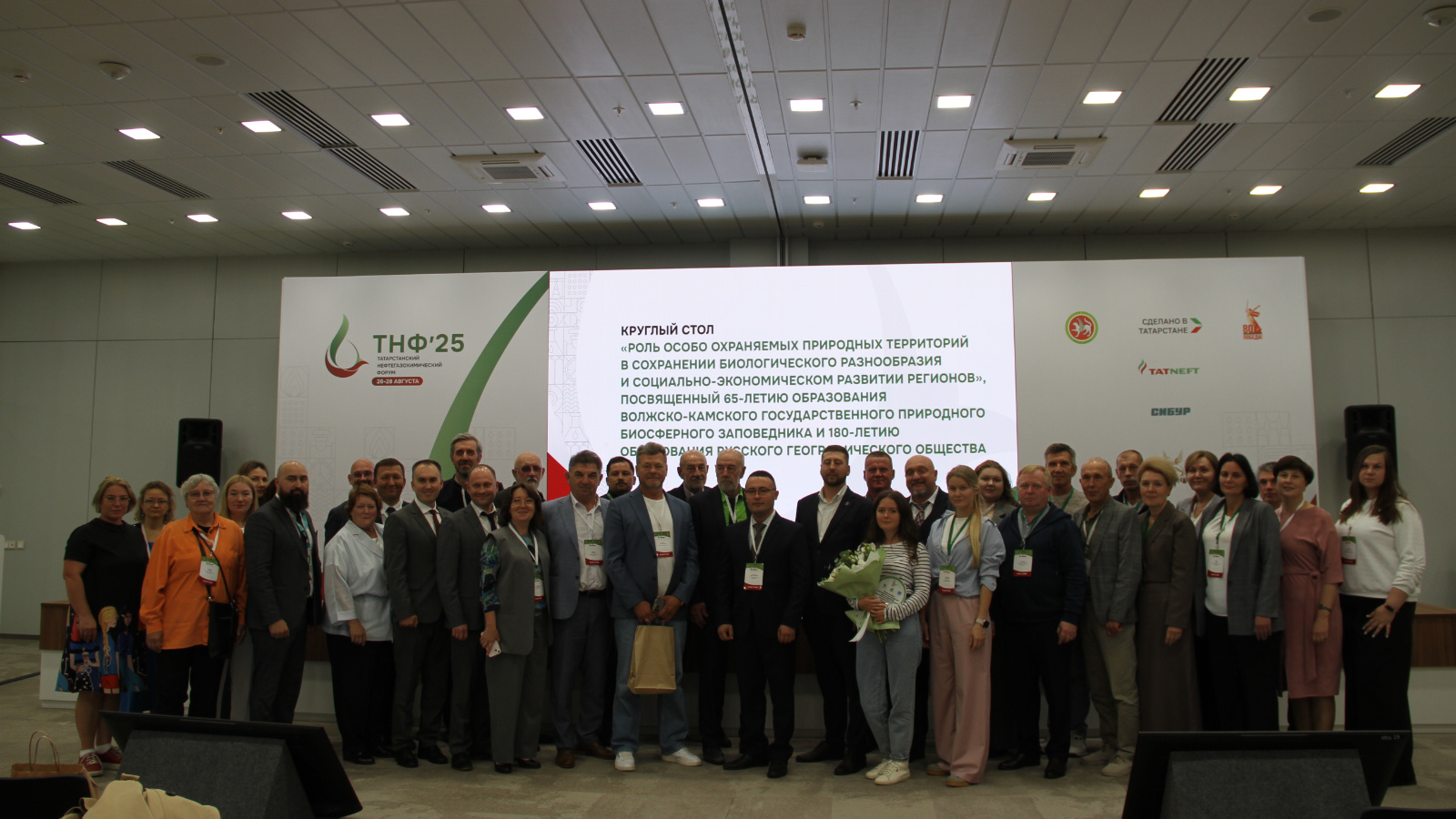The A. I. Shchepovskikh Conference discussed the role of specially protected natural areas in the regions of Russia

In the framework of the XX All-Russian Scientific and Practical Conference named after A. I. Shchepovskikh a round table dedicated to the role of specially protected natural areas in the conservation of biological diversity and socio-economic development of the regions was held.
Ilnur Nasretdinov, Deputy Minister of Ecology and Natural Resources of the Republic of Tatarstan, delivered a welcoming speech. He noted the importance of finding balanced solutions between industrial development and nature protection in the context of modern environmental challenges. "The Republic of Tatarstan, as we know, is one of the leading industrial centers in Russia and consistently implements a policy of environmental responsibility. We strive to ensure that the development of industry not only does not harm the environment, but also promotes the rational use of natural resources. The specially protected natural territories of the region perform the most important function of preserving the unique biodiversity. They also serve as important educational platforms where large-scale work is carried out on environmental education of the population," the Deputy minister noted.
The round table was attended by more than 50 people — representatives of nature reserves, scientists, employees of enterprises and relevant departments. Among the speakers were the heads of such specially protected areas as the Volga-Kama State Natural Biosphere Reserve, Nizhny Novgorod Volga Region, Preserved Crimea and Nizhny Kama.
Yuri Gorshkov, ex-director of the Volga-Kama Reserve, summed up the results of the reserve's activities, emphasizing the merits of Anatoly Ivanovich Shchepovskikh and unique projects, including the expansion of the territory of the Raifa site, the reintroduction of the European beaver, as well as the introduction of modern remote research methods — radio transmitters, bird banding and camera traps.
Yan Murzakhanov, Director of the Volga-Kama Biosphere Reserve, presented plans for the development of the Raifa site and environmental education facilities — the arboretum, the Nature Museum and the Zapovedny Teremok Visitor Center. "The modernization of the Visitor Center will allow, at the initial stage, to acquaint visitors who have come to the monastery with the fact and features of the existence of the protected area and its mission," the speaker said.
He noted that the arboretum's sightseeing trail, where plants over 100 years old grow, is currently being reconstructed. The ecological trail will connect the Raifa Monastery with the natural attractions of the territory, contributing to ecological tourism. Yan Murzakhanov emphasized: "Nature protection is our common cause."
Artur Murzakhanov, Director of the Federal State Budgetary Budgetary Institution "Reserved Crimea", spoke about the importance of a balance between the development of tourism and the preservation of biodiversity using the example of the Yalta Nature Reserve. He noted that thanks to the reserve, it is possible to significantly reduce the burden on the city and develop the ecological infrastructure, which contributes to the sustainable development of the region.
Vadim Prokhorov, Head of the Department of General Ecology at the Institute of Ecology, Biotechnology and Nature Management of KFU, presented the results of greenhouse gas monitoring at the Carbon-Volga carbon landfill in the Saralinsky section of the Volzhsko-Kama Reserve. This landfill is unique in that it is located in a broad-leaved area, whereas most of these sites are located in the taiga regions. Its tasks include not only monitoring, but also the development of climate projects and international cooperation.
Mikhail Gorshkov spoke about the state of aquatic biological resources of the Kuibyshev reservoir in the water area of the Saralinsky section of the reserve. According to him, the conditions for aquatic organisms are favorable, and the species diversity is high; at the same time, the water quality varies from moderately polluted to polluted according to biological indicators.
The participants of the round table unanimously confirmed the importance of an integrated approach to the management of protected areas. Specially protected natural territories are recognized as key not only for the conservation of biodiversity, but also as an important factor in the socio-economic development of Russian regions.